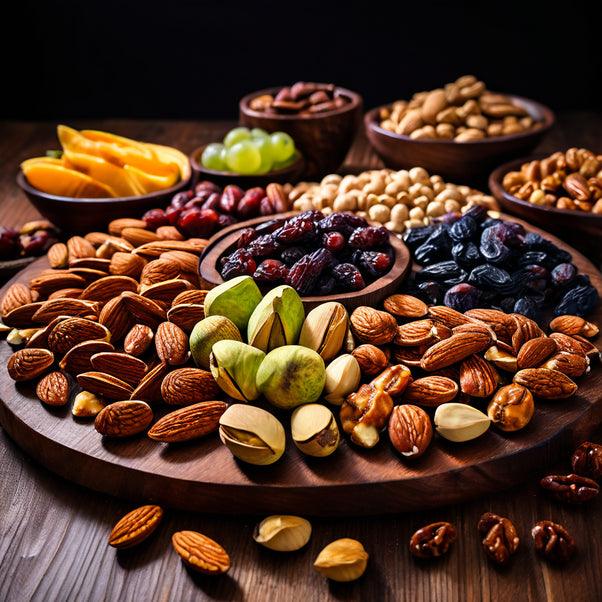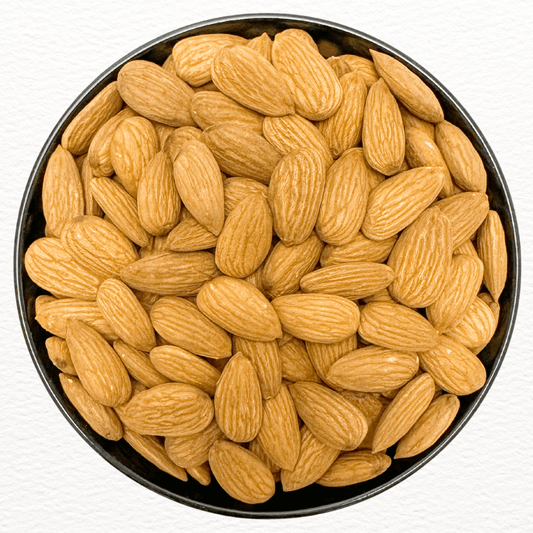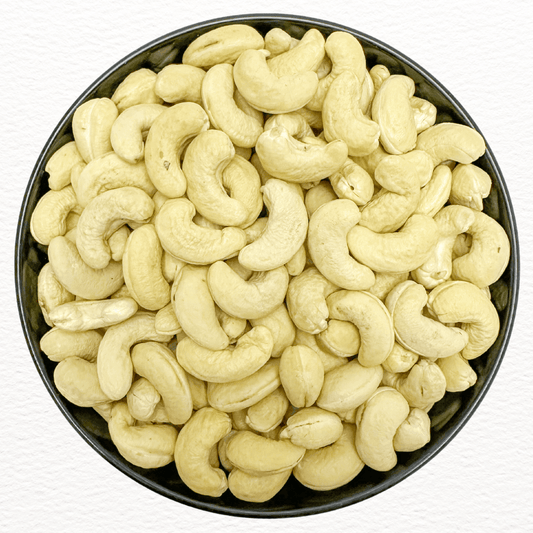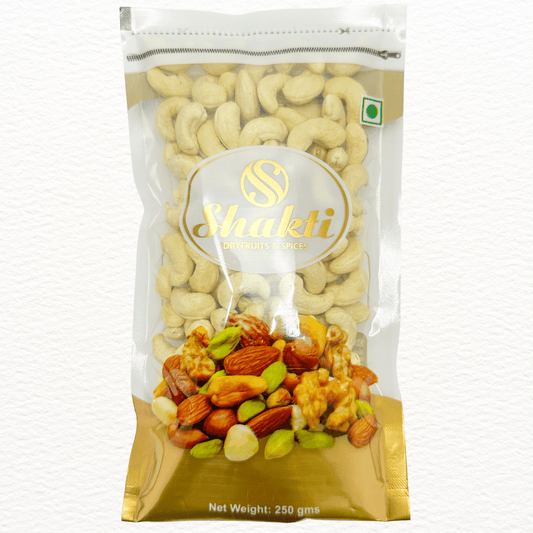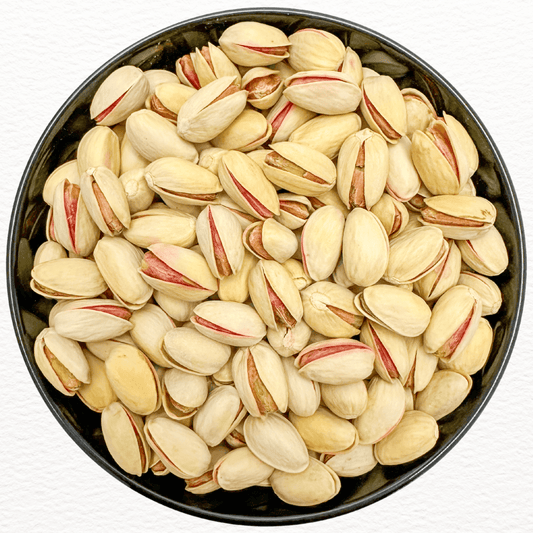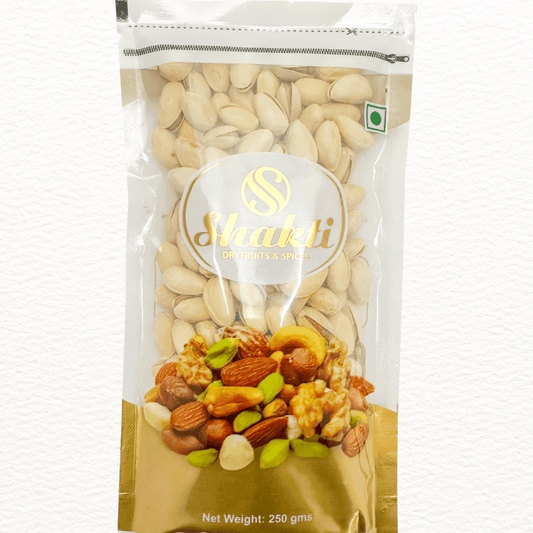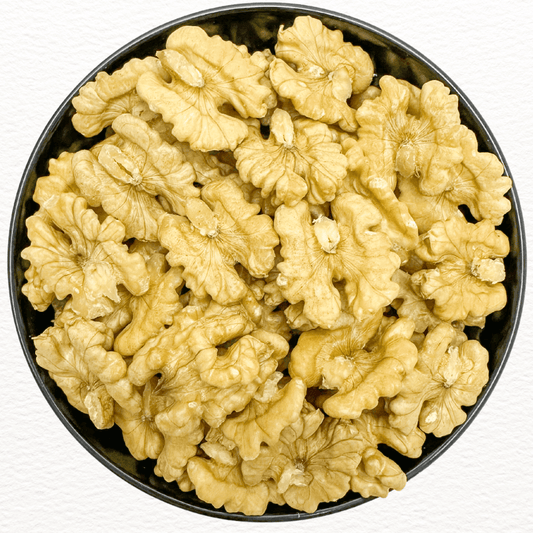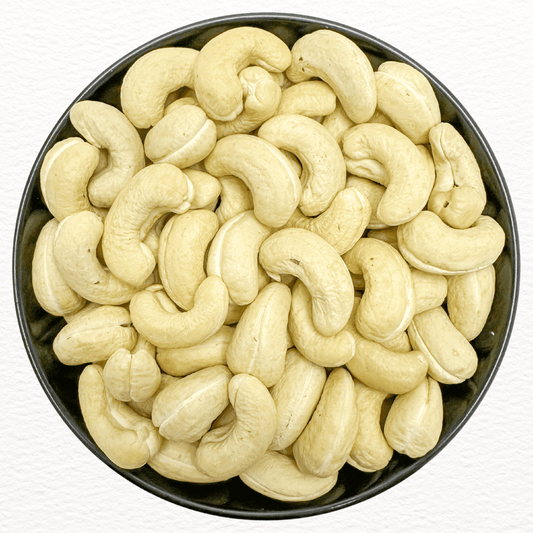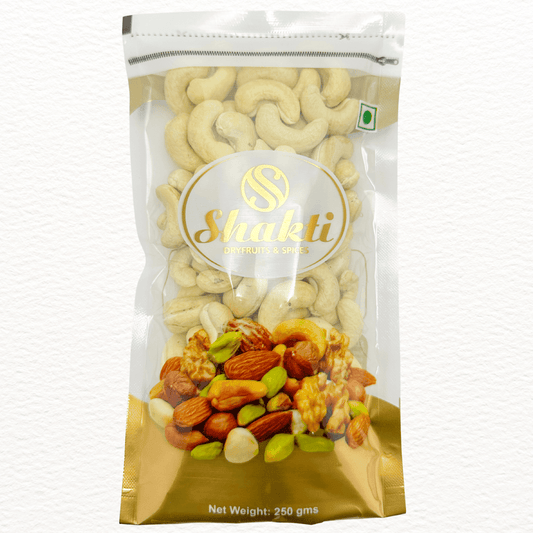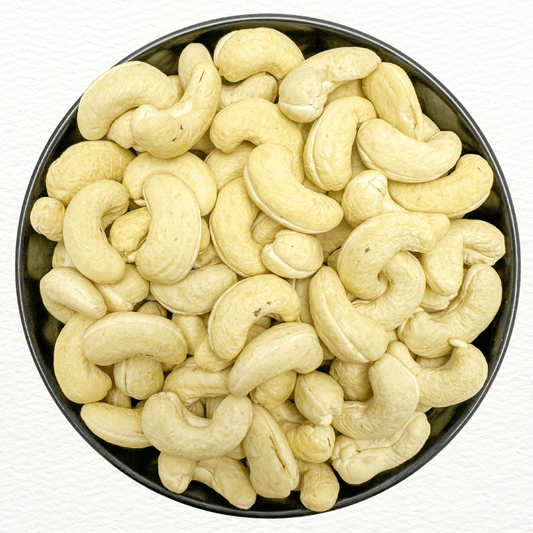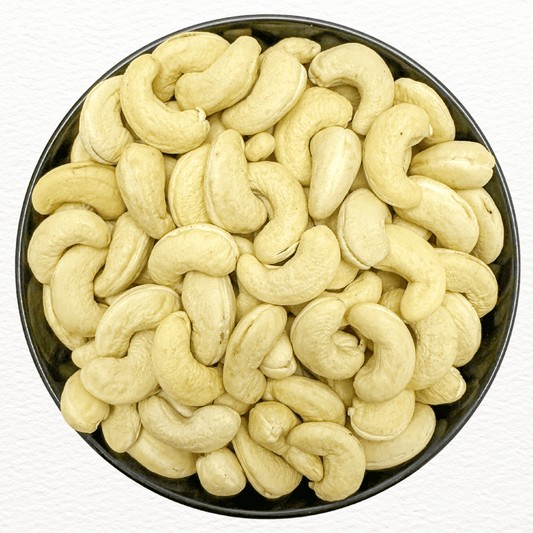Best Time to Eat Dry Fruits: Maximize Health Benefits with Perfect Timing
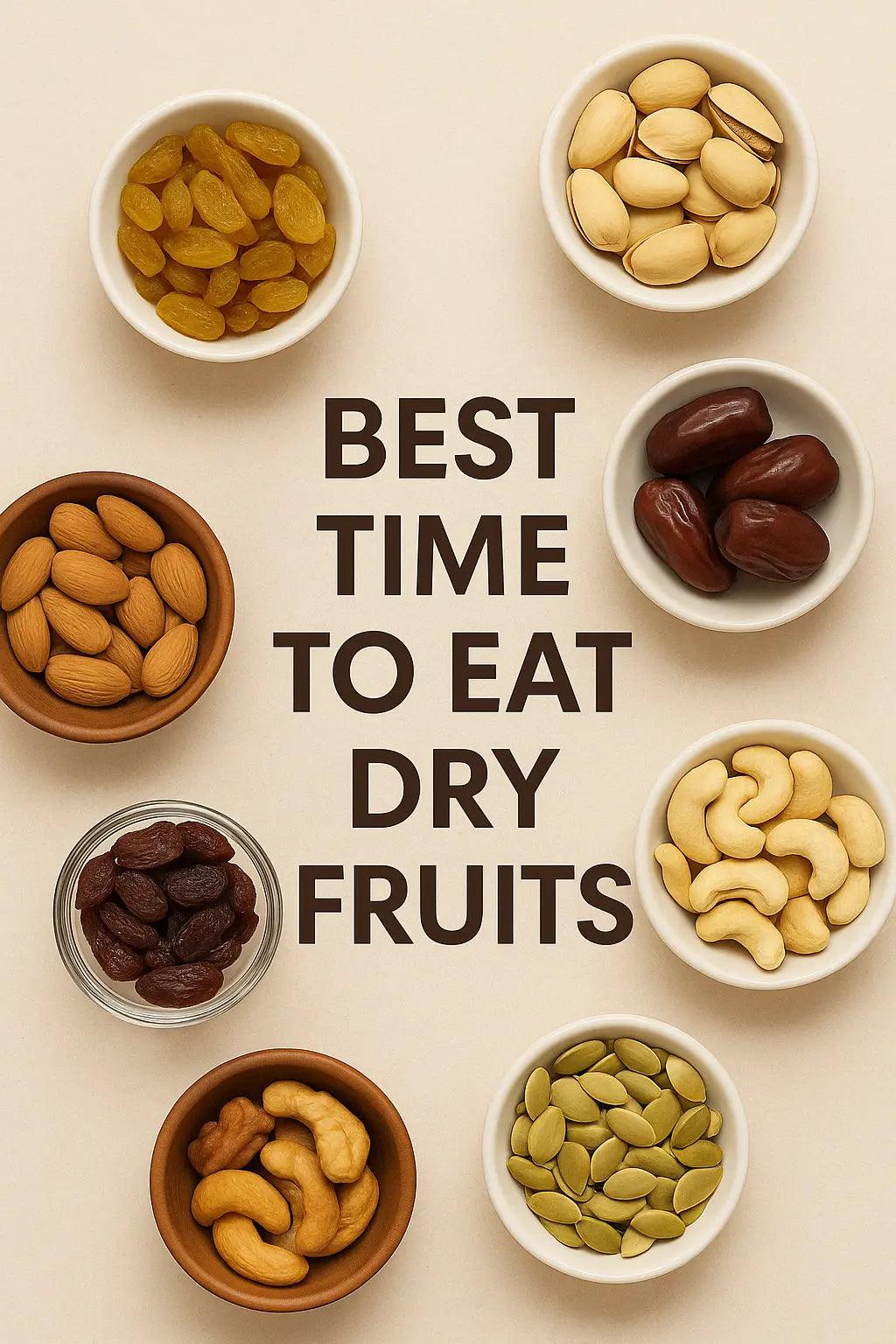
1. Introduction
Dry fruits are nutritional powerhouses—rich in vitamins, minerals, healthy fats, and protein. But here’s the twist: when you eat them matters just as much as what you eat.
Most people casually munch on almonds or raisins at random times. While it’s still better than eating junk, eating dry fruits at the wrong time can reduce nutrient absorption, spike blood sugar, or even lead to unnecessary calorie overload.
This blog breaks down the best times to eat different dry fruits—whether you're focused on energy, digestion, weight loss, muscle recovery, or sleep quality.
2. Why Timing Matters When Eating Dry Fruits
🔄 Nutrient Absorption & Digestion
Some dry fruits like almonds and raisins release more nutrients when soaked overnight. The soaking process breaks down enzyme inhibitors and makes digestion smoother.
⚡ Blood Sugar & Energy Regulation
Dry fruits are naturally high in sugars and fats. Eating them strategically (e.g., pre-workout) helps fuel the body instead of spiking blood sugar unnecessarily.

🧠 Ayurveda vs Modern Nutrition
-
Ayurveda recommends dry fruits in the morning, soaked and consumed on an empty stomach.
-
Modern nutrition supports eating dry fruits around active periods (like workouts) for maximum impact.
💪 Weight Loss, Sleep & Metabolism
Dry fruits like walnuts and pistachios have sleep-inducing compounds, while others like almonds and makhana boost metabolism. Timing can amplify these effects.
3. Morning: The Golden Window (Best Time Overall)
The absolute best time to consume most dry fruits is in the early morning on an empty stomach, especially after soaking overnight.
✅ Best Choices:
-
Almonds (soaked): Improves memory, skin, and metabolism
-
Raisins (soaked): Natural detox, supports digestion
-
Walnuts: Enhances brain function, balances hormones
🧘♂️ Benefits:
-
Jumpstarts metabolism
-
Aids bowel movements
-
Sharpens mental clarity
-
Fuels energy without bloating
Pro Tip: Soak 5 almonds, 2 walnuts, and 10 raisins overnight. Eat them first thing in the morning with warm water.
4. Pre-Workout: Fuel Up Right

Dry fruits are nature’s energy bars. They’re portable, clean, and ideal for a pre-workout snack that fuels endurance.
✅ Best Choices:
-
Dates: Fast-digesting natural sugar, ideal for cardio
-
Almonds: Protein and healthy fats for strength training
-
Peanuts: Great plant-based protein, high satiety
-
Figs (Anjeer): Iron-rich, boosts oxygen flow to muscles
🕒 Timing:
-
Eat 30–60 minutes before your workout
-
Don’t overeat — 5–6 pieces are enough
💪 Benefits:
-
Sustains energy without sugar crash
-
Prevents muscle fatigue
-
Enhances stamina and performance
Pro Tip: Mix 2 chopped dates, 4 almonds, and 1 fig in a bowl — quick pre-gym energy.
5. Post-Workout: Repair & Recovery
After exercise, your body needs to replenish glycogen and repair muscle tissue. Dry fruits rich in protein, magnesium, and healthy fats can accelerate recovery.
✅ Best Choices:
-
Pistachios: Anti-inflammatory, protein-rich
-
Pumpkin Seeds: 30g protein per 100g, rich in zinc
-
Cashews: Rebuilds strength, loaded with magnesium
💡 How to Eat:
-
Pair with Greek yogurt, smoothies, or post-workout shakes
-
Use in protein laddoos or energy bars
🔄 Benefits:
-
Restores muscle fibers
-
Reduces soreness
-
Boosts post-exercise energy
Pro Tip: Add 1 tbsp pumpkin seeds + 6 pistachios into your post-workout protein shake for a performance boost.
6. Midday / Mid-Meal Snack: Beat Cravings Smartly
We all face that 3 PM slump — when energy drops and the temptation for chips or sugar-loaded biscuits creeps in. Enter: dry fruits.
Dry fruits make an excellent midday snack that stabilizes blood sugar levels, satisfies hunger, and keeps your brain alert.
✅ Best Options:
-
Makhana (Fox Nuts): Light, low in calories, high in protein and iron

-
Dried Apricots: Natural sweetness, fiber-rich, great for digestion
-
Trail Mixes: A smart combo of almonds, cashews, raisins, pumpkin seeds, cranberries
🕒 Ideal Time:
-
Between 12:00 PM to 3:30 PM, between meals or as a lunch replacement when needed
🌟 Benefits:
-
Beats mindless snacking
-
Keeps energy levels stable
-
Prevents afternoon cravings & brain fog
-
Supports better portion control at dinner
Pro Tip: Make a trail mix with 4 almonds, 4 pistachios, 1 dried apricot, ½ tbsp pumpkin seeds — keep it in your desk drawer or backpack.
7. Evening: Yes or No?
Evening is a tricky zone. It’s when your metabolism starts slowing down, but your snack cravings are still real — especially with chai or coffee.
So, can you eat dry fruits in the evening? Yes — but wisely.
✅ Safe Choices:
-
Roasted Almonds (Unsalted): Crunchy, protein-packed, and light
-
Fox Nuts (Makhana): Low-calorie and fills you up fast
-
A Few Walnuts: Satisfying and heart-friendly
❌ Avoid:
-
Sweetened cashews or salted peanuts
-
Sugar-coated dry fruits or processed mixes
🕔 Best Time:
-
4:00 PM to 6:00 PM
-
Pair with herbal tea or warm water instead of sugary beverages
🌟 Benefits:
-
Satisfies hunger without spiking blood sugar
-
Helps avoid unhealthy dinner binging
-
Keeps your metabolism stable till dinner
Pro Tip: Try lightly roasted makhana with rock salt + turmeric — tasty, guilt-free, and packed with minerals.
8. Night: What’s Safe to Eat Before Bed?
Late-night snacking is usually a big no in wellness circles — but there are a few dry fruits that are actually beneficial when eaten before bed.
In fact, some of them support deep sleep, muscle repair, and nighttime recovery.
✅ Best Choices:
-
Walnuts: Contain melatonin (the sleep hormone) + Omega-3
-
Pistachios: Also high in melatonin and magnesium
-
Almonds (in moderation): Help reduce cortisol and calm nerves
❌ Avoid at Night:
-
Cashews: High in fat, can be heavy on the stomach
-
Raisins: Natural sugar might spike insulin and disturb sleep
-
Dates: Too sugary, can interfere with fasting or weight goals
🕙 Best Time:
-
30–60 minutes before bed, ideally with a glass of warm milk or on their own
🌟 Benefits:
-
Enhances sleep quality
-
Supports overnight muscle and tissue repair
-
Keeps midnight hunger in check
Pro Tip: 2 walnuts + 4 pistachios before bed can help you sleep deeper and wake up fresher.
9. Common Mistakes to Avoid When Eating Dry Fruits

Even the healthiest foods can become counterproductive if consumed incorrectly. Dry fruits are nutrient-dense — but they're also calorie-dense. Here are four mistakes you should absolutely avoid:
🚫 1. Overeating (Portion Control)
Just because they’re natural doesn’t mean you should eat a bowlful. Dry fruits are rich in fats and calories — a handful is enough.
Suggested daily quantity:
-
5 almonds
-
2 walnuts
-
10–15 raisins
-
4 pistachios
-
1 fig
-
1 tbsp seeds
🚫 2. Eating Without Soaking (Especially Almonds & Raisins)
Raw almonds and raisins contain antinutrients like phytic acid and tannins, which can hinder nutrient absorption and cause bloating.
Solution: Soak almonds, raisins, and figs overnight. Peel almonds before eating for better digestion and bioavailability.
🚫 3. Mixing Incompatible Fruits
Combining heavy dry fruits like cashews and dates with light ones like raisins or figs can cause digestive overload, especially when consumed with milk or heavy meals.
Tip: Stick to 2–3 types of dry fruits in a single snack to avoid stomach discomfort.
🚫 4. Eating With Heavy Meals
Many people sprinkle dry fruits over biryani, kheer, or sweet dishes. But doing so with full meals can interfere with digestion and spike calories unnecessarily.
Best Practice: Keep dry fruits as standalone mini-meals — either pre-meal or 2 hours post-meal.
10. FAQs – People Also Ask
❓ What happens if I eat dry fruits at night?
Some dry fruits like walnuts and pistachios can actually improve sleep quality due to their melatonin and magnesium content. But avoid sugary dry fruits like raisins or dates — they may disrupt insulin levels and sleep cycles.
❓ Should I eat soaked or raw dry fruits?
Soaked is better for almonds, raisins, figs, and apricots. Soaking removes enzyme inhibitors and improves digestion. Dry fruits like cashews, pistachios, and makhana can be eaten raw or lightly roasted.
❓ Can I eat dry fruits every day?
Yes — in moderate portions. Daily intake of a balanced mix of almonds, walnuts, and seeds can support immunity, brain health, metabolism, and skin glow. Just watch portion sizes and timing.
❓ Which dry fruit is best on an empty stomach?
Soaked almonds and raisins are ideal for mornings. They cleanse the gut, boost energy, and support better nutrient absorption.
11. Conclusion: Timing + Portion = Health Mastery
You’ve heard dry fruits are healthy. But now you know when to eat them makes all the difference.
-
Morning: Soaked almonds, raisins, walnuts
-
Pre-workout: Dates, peanuts, almonds
-
Post-workout: Pumpkin seeds, pistachios
-
Midday: Makhana, dried apricots
-
Evening: Roasted almonds, fox nuts
-
Night: Walnuts, pistachios (only if needed)
Stay mindful of how much you’re eating and when — that’s the key to getting all the benefits without the downsides.
Want premium, clean, and naturally packed dry fruits for every time of day?
👉 Visit Shakti Dry Fruits — India’s trusted brand for purity, taste, and wellness.
From soaked almonds to gym-friendly trail mixes, we’ve got you covered.
